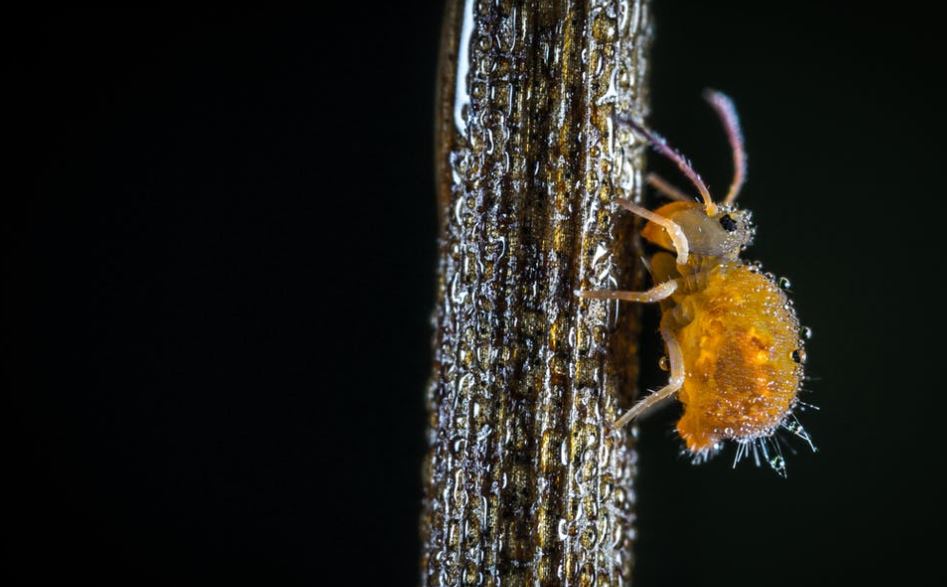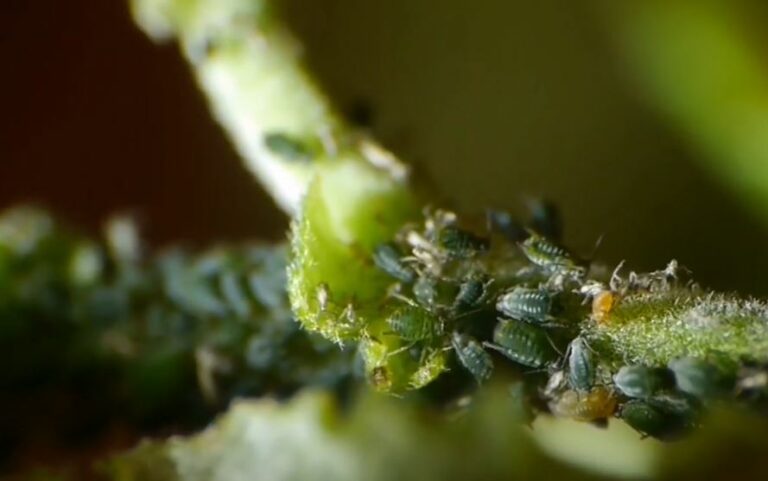


You don’t need to buy expensive pesticides how to get rid of aphids permanently. In fact, using natural methods to get rid of aphids can actually help your garden grow stronger and healthier, while also helping you avoid toxic chemical use.
You may not want to admit it, but it’s possible that you’ve had an infestation of aphids in your garden at some point in time. If you have, then you know how unpleasant it is to see those tiny little insects crawling around on your plants, eating the leaves, and causing havoc.
I’ve spent a lot of time thinking about what makes me tick and what I would like to see in a watercolor curriculum. I’m a firm believer that if you want to learn anything, you need to be able to see it.
That’s why I’ve chosen to teach from the perspective of a student because it gives me an insight into what people are looking for in a learning environment.
What Are Aphids?

Pests can cause a lot of damage to your property and your health. If you have pest problems, you may be able to find a pest control company that can help you.
Aphids are soft bodied, and their long mouthparts make it easy for them to pierce stems, leaves, and other plant parts and suck out fluids.
Most plants have at least one aphid species that can occasionally feed on them.
Aphids look similar, but some are easier to identify than others. They are also quite different. Aphids are a type of insect. They’re very small and difficult to see.
I’m excited to share this natural remedy with you. I’ve been using it for years and it works well for me.
How Can You Identify Them?

The common aphid is a very widespread pest which can infest almost any plant. It has soft bodies, often with a whitish head, and two pairs of wings. The aphids feed on sap by sucking the sap from the plant’s stems, leaves, buds, and flowers.
Cornicles are a pair of tubelike structures projecting backward out of the hind end of an insect’s body. They are found in most species of insects, and are generally attached to the anus.
If you have ever had a plant bug, or a tomato hornworm, you know that these are fast moving creatures. Aphids are not the same. They don’t move as quickly, but they can still fly quite far.
Their ability to fly is one of the reasons they are considered to be among the most destructive pests.
What Does Aphid Damage Look Like?

Image Credits: researchgate.net
I have been studying the damage caused by aphids for many years, and I have seen them cause damage in many different ways.
Some aphids have special mouth parts that inject saliva into plant tissue causing a sticky mess that makes it difficult for the plant to absorb water. Other aphids bite into plant tissue causing it to die, dry out, and shrivel up.
Other aphids suck plant juices from leaves and stems, which results in yellowing of the leaves and/or wilting.
What Is the Impact of Their Damage?
Aphids are a common problem in many gardens and nurseries. If you have an infestation, there are several things you can do to help prevent or limit the spread of the insects.
The first step is to remove plants that are infested, and you can then use a pesticide to kill the aphids. The most effective pesticides are ones that are systemic and act by entering the plant through the roots.
Aphids are small insects that suck the juices out of plants, causing them to wilt and die. They are also vectors for a number of important plant viruses that are transmitted to other plants. Aphids feed on many different types of plants, but they are most common on roses, vegetables, and ornamentals.
Aphids are a major problem in fruit orchards, where they feed on the blossoms and fruits, causing leaves to curl and distort growth.
Many people don’t realize that aphids can transmit viruses that can cause serious diseases in some plants. One such disease is the Peach Leaf Curl Disease.
Once the peach leaf curl virus is transmitted from the aphid, it can take months to years to kill it. The sooner you can eliminate the aphid, the better.
Using Alcohol to Control Aphids.
When spraying alcohol, the sprayer tip must be placed close to the surface being sprayed. Spray the area for about a minute. The alcohol evaporates quickly, so don’t spray for more than a minute. If you do not get the desired effect, repeat.
The most common solution is to spray the plant with soapy water (liquid dish soap) mixed with isopropyl alcohol. Alcohol evaporates quickly, so the plant will need to be sprayed again if you want to see any results.
Always read the label. You don’t want to harm your plant with a spray. A good tip is to use a spray bottle that is wide-mouthed. The spray will be less likely to get into the container.
Related: Can Rats See in The Dark?
How to Get Rid of Aphids Naturally and Permanently
1. Prevention Is Better than Cure
Preventing pests and diseases from ever getting to your plants is the best strategy for dealing with them. The best way to do this is to keep your plants healthy and well-fed. You can also use natural remedies that are safe for your plants and help keep insects away.
Monitor for nutrient deficiencies throughout your diet to identify and resolve problems early enough.
Inspect your plants for aphids regularly. Aphids are more likely to show up when plants are actively growing and you can see them, so be sure to check them every two or three days.
In our gardens, we use lots of fertilizer, but we also regulate the amount of nitrogen based fertilizer. When we apply fertilizer, we often apply too much and it gets used up too quickly. This causes the soil to become acidic and the plants to struggle.
Related: Does Bleach Kill Roaches?
2. Push and Pull

When you see aphids on your flowers, use a push and pull strategy. Put a few pieces of tissue paper on your hands and press down on the aphids. Then pull the paper away from you, and the aphids will drop off. You can also use this technique on your leaves and twigs.
There are many types of companion plants, but one of the most effective companion plants is the alliums (such as onions and garlic). They repel pests and diseases. Companion plants are a great way to protect your crops from pests and diseases.
Some people have tried to blame aphids for the damage to their vegetable crops. However, it’s not true that aphids are the cause of the damage. The real culprit is the virus that the aphids carry. The virus is called ‘Aphid lethal yellowing virus’.
Aphids are notorious for choosing the wrong plant, but they do so because they have evolved to be attracted to certain plants. As a result, the aphids are often seen on trees with the bark of the tree that they are most attracted to.
For example, if the aphid is attracted to the bark of a willow tree, then they will be seen on a willow tree.
Related: Can Fleas Fly?
3. Sticky Traps
Yellow sticky traps are very popular among gardeners and home owners. They can be used to detect aphid infestations, monitor for mite infestations, and determine the presence of spider mites.
They are also useful in determining the presence of mealy bugs and scale insects. They can be used in the greenhouse, home, office, and in the field.
The Kensizer Dual Sided Sticky Trap is the most effective sticky trap on the market. It is also the only trap with a built-in fan that helps disperse the scent of the bait.
The Kensizer Dual Sided Sticky Trap is designed to capture all types of pests, such as aphids, mealybugs, whiteflies, leafhoppers, thrips, spider mites, and more.
4. Use Natural Enemies Against Aphids

Image Credits: simonleather.wordpress.com
Aphids are common pests of plants in many parts of the world. They can cause serious damage to crops and garden plants by sucking the juices from leaves and stems. Aphids also called plant lice, cause damage to many plants. Biological control is an effective way to deal with them.
There are two ways to bring beneficial bugs into your garden. You can either attract them with a specific bug bait or you can simply let them do their thing.
5. Create biodiversity

Image Credits: deannabeasley.com
Biological control refers to the use of naturally occurring predators or parasites to keep pest populations from becoming too large. For example, ladybugs eat aphids and other pests.
I have found that if you create a garden environment that includes a variety of plants and flowers, the natural balance will help keep pests at bay.
Bird feeding is an effective way to keep your yard healthy and pest free. By providing food for the birds, you’ll also attract them to your yard. You’ll see that they’ll be visiting your yard more often and they’ll be much less likely to leave droppings on your lawn.
6. Rub Them Away
It is advisable to control the aphids at the initial stages as they are most vulnerable.
You can do this by hand picking and rubbing them away. This is the easiest way and the most effective one.
7. Liquid Water with Extreme Pressure
Hosing can be an effective method to kill aphids, but you have to use a pressure regulator on your nozzle to keep the water from spraying out too quickly. It’s best to use high pressure, but if you’re having trouble getting them to budge, try a lower pressure.
The first reason is that the nozzle creates a strong stream of water which can penetrate the bush. The second reason is that the nozzle allows for a fine mist spray, which is useful for creating watercolor effects.
8. Use Organic Insecticide
You can use any organic insecticide that’s safe for your plants. There are many options out there. Here are some that you can find in local stores: Citric acid, Neem oil, pyrethrin, neem oil spray, neem oil soap, neem oil, neem oil soap, and neem oil.
I’m not a gardener or a farmer, so I don’t have specific recommendations on how to kill aphids. However, I have found that I can spray with a mixture of water and soapy water to kill them.
I usually use a spray bottle, but you can also buy a commercial product for this purpose. I use a mixture of water and Dawn dish soap, but you can use whatever brand you like.
9. Keep the Ants Around
You should try to keep the ants around your garden under control by not feeding them. I use a natural ant bait called “Ant Bait” which is made up of a blend of soybean oil and water.
Aphids and ants are not good for plants. The aphids suck the plant juices and the ants eat them. So cutting the relationship between the aphids and ants is the best way to get rid of aphids.
You can use insecticidal soap and neem oil to kill the aphids and ants. You can also use a combination of these two..
Conclusion
You’re probably thinking right now, “What? I have to kill them? This is ridiculous.” Well, you’re wrong.
Yes, killing aphids is the best way to control them, but if you don’t kill them, they’ll just keep coming back and back again. Killing them is a long-term solution that will prevent their return.


I Hope This Guide Will Serve as A Quick Reference. if You Like This Article Hit the Newsletter/subscribe Button to See Our New Posts About and Share It with Your Friends, Also Gives Back Your Feedback if You Like or Dislike Anything in The Comments Section.
Thank You.
Please let me know I miss anything Or Maybe I didn’t mention!